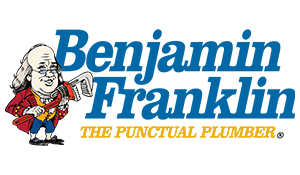The Connection Between Dirty Drains And Mold
A racking cough or splitting headache might be more than the common cold. If your plumbing system is misbehaving, water damage and mold can be triggering allergy and respiratory problems.
Dirty drains are more than a minor frustration. Left unrepaired, they can contribute to mold growth inside your Pensacola home. When this happens, it’s essential to reach out to our team of plumbing professionals to diagnose and repair the underlying issue before the mold makes your family sick.
How Do Dirty Drains Lead to Mold Growth in Your Florida Home?
Dirty drains can cause mold in a few different ways, which is why it’s so important to prevent dirty, clogged drains from happening.
- Standing Water: If the drain is clogged, it can cause standing water. Anytime water, moisture, or humidity remains in an area, it increases the likelihood of mold developing.
- Trapped Organic Materials: Similarly, food, hair, or other items can end up trapped in a drain. Besides potentially clogging the drain or rotting, these organic materials are a food source for mold spores.
- Biofilms: Over time, soap, food waste, and bacteria can mix together to make a biofilm. Unfortunately, this slimy biofilm can feed mold in your pipes.
- Small Leaks: Clogs can increase pressure in your plumbing system, making leaks more likely. Hidden leaks allow moisture to drip into crawlspaces and cabinets. As a leak continues, it can fuel the growth of mold.
To make the situation worse, some of the areas where drains are normally located also have poor ventilation. In bathrooms, the lack of airflow can trap moisture and allow mold to spread unchecked.
Common Signs of Moldy Drains
If the idea of creeping, insidious mold growth gives you the creepy crawlies, you are not alone. Keep an eye out for the following common signs of mold in your plumbing fixtures.
- Slow Drains: Because mold growth can block drains, you may notice that your home’s drains seem to empty at a slower rate than they normally do.
- Musty Scents: One clear way to tell if your home has any mold growing is by sniffing for it. Some people are more sensitive than others, so you might not always be able to smell when mold is present.
- Water Damage: If you notice peeling paint, discolored floorboards, and other signs of water damage, you can guarantee that water has been leaking into places where it shouldn’t be. Even if you can’t visually see any telltale signs of mold, there is a high chance that mold is present.
- Health Problems: It doesn’t take long for mold to impact the health and well-being of everyone in your house. Mold can trigger allergy symptoms, headaches, and respiratory illnesses.
One of the most obvious signs of an impending mold invasion is visible mold. If you see creeping green or brown tendrils blossoming on your cabinets, walls, and flooring, then you need to schedule plumbing repairs and water remediation services right away.
The Repercussions of Having Mold in Pensacola Homes
No one wants mold to grow inside of their Pensacola home. Over time, it can harm your family’s health. While elderly and young occupants are most at risk, allergy and asthma sufferers often struggle with mold-infested dwellings. However, long-term exposure to mycotoxins from mold can lead to neurological symptoms as well.
As mold grows, it can also damage your home’s structure and building materials. Even minor mold growth can be expensive to repair. If there has been extensive damage, you may be on the hook for thousands of dollars in mold-related repairs. Mold colonies can quickly break down your carpet fibers, drywall, and wood also affecting your homes value.
How Our Licensed Plumbers Can Protect Your Home From Mold
If you think you may be dealing with mold-related problems, we can help. We will quickly inspect your plumbing systems for signs of clogs and debris. Then, we will use our state-of-the-art tools to remove any clogs.
Our professional plumbers can also check your plumbing system for potential leaks. Afterward, we can repair drains and replace pipes to stop any leaks from happening.
In between your routine maintenance visits, there are a few things you can do to prevent mold growth and dirty drains.
- Use Vinegar and Baking Soda: Each month, pour a vinegar and baking soda mixture down your drains to keep them clean. Never use harsh drain cleaners because the powerful chemicals can damage your plumbing system.
- Install Drain Guards: To prevent clogs in your drain, you should install drain guards and make sure to clean them out regularly. Additionally, you should never pour grease down your drains.
- Ensure Good Ventilation: To avoid mold growth, you need to have good ventilation in your home. Make sure your family members remember to use the exhaust fans in your bathrooms and kitchens to eliminate excess humidity.
- Avoid Grease, Oil, and Fat: When you are cooking, you should make sure food items don’t go down the drain. In particular, you need to keep grease, oil, and fat out of your drain because these items can solidify into clogs.
- Schedule Professional Maintenance and Repairs: To keep dirty or clogged drains from causing mold, make sure to schedule routine maintenance visits each year. You should also call for repairs as soon as you notice a potential problem.
Get Professional Plumbing Services in Pensacola
At Benjamin Franklin Plumbing, we’re known for our prompt, reliable services. If there’s any delay, it’s YOU we pay! Our team shows up on time and ready to diagnose complex plumbing problems. From routine maintenance to whole-home repiping, we can handle all of your home’s plumbing needs. To learn more about our top-rated plumbing services and get a professional inspection, call our plumbing experts today!

